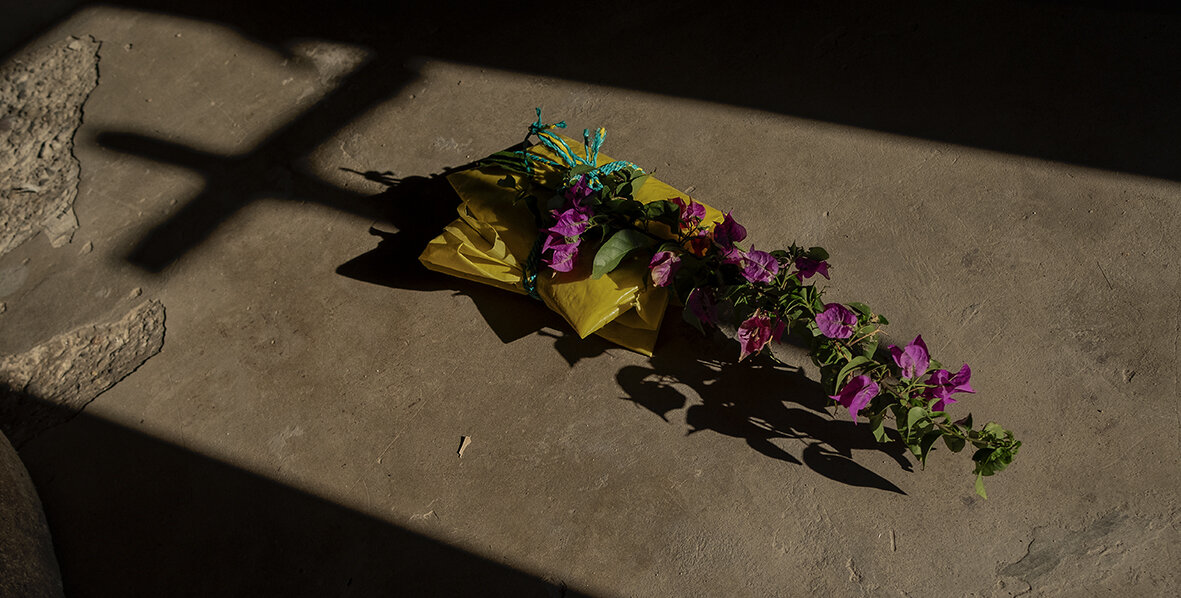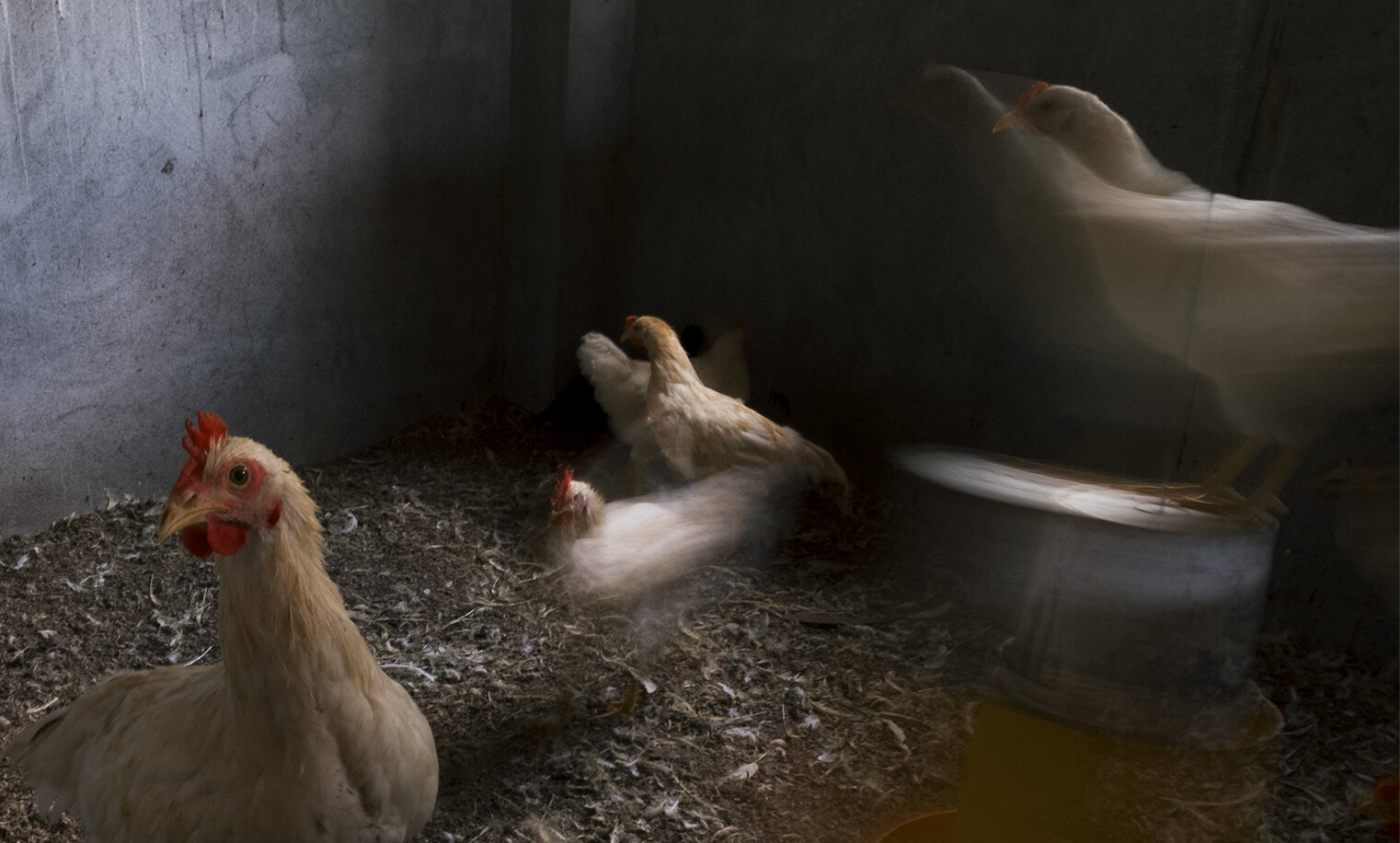Gabriela Ureta - The Waltzes of Don Claudio, 'Los Pasillos de Don Claudio'
Gabriela Ureta is an Ecuadorian documentary photographer currently living in London, but soon due to return home to Ecuador. Her initial interest in documentary photography stemmed from its unique method of storying the individual moments that define a person’s life. She tells me, “Pictures force the reader to contemplate, to stop and look at these moments in a forceful way.” Moreover, the process of photographing as opposed to film she notes, “Allows subjects to be more uninhibited and therefore showcase a more authentic experience.”
Within all her work exists an underlying drive to present raw, candid, and spontaneous events–as almost every picture in her collections captures un-posed, undirected moments, led by the volition of the subjects themselves. Her contemplative photo essays shift between themes of immigration, trans rights, mental health and community integration. Given the sensitivity of these topics, Ureta’s practice carefully considers the agency of each person featured, and honours their existence beyond photographic subjects. Here, she provides the opportunity for those featured to tell their stories in their own words and through imagery which they not only consent to, but create alongside her, through their own direction.
- Alexa Fahlman
Her series The Waltzes of Don Claudio is indicative of her emphatic approach; however, this series is particularly unique in that it emerged through fate’s chance happenings.
While tasked with photographing people in a small Ecuadorian village, she was entranced by a house covered in vibrantly-coloured handmade crosses. Looking at the house’s exterior, there is an overwhelming sadness and loneliness that haunts the family of five crosses that rests above the door. The following morning, Ureta asked if she could photograph this home, which she later learnt belonged to whom the village nicknamed “El Loco Carlos,” Don Claudio. In 1947, Don Claudio was born in a small village in Ecuador. In his youth he worked as a fisherman and a farmer with his family. He continued to live in the coastal region, eventually settling down with his now estranged wife, Rosa, and their children. Throughout his life, he has suffered extensively from mental health problems– in some interviews he describes breakdowns and periods in psychiatric hospitals, notably in the Lorenzo Ponce institute in Guayaquil. However, by his own accounts and those of his family members, within the last twenty years his illnesses have worsened. Noticeably after his wife left him and more intensely upon the deaths of his two young adult sons, Enrique in 1999, and Javier just a few years later–both of whom died separately in Don Claudio’s home and in his sole presence. The similar circumstances surrounding the deaths have led many to suspect Don Claudio of murder; the family members Ureta spoke to confirmed these suspicions, which are further exacerbated by the perceived lack of effort in the resulting police investigations (indeed, for Enrique an autopsy was not ever performed). So pervasive is the conviction of Don Claudio’s guilt that local legends have even appeared, which through a mix of Colonial and Hispanic folklore, part Werewolf, part ‘La Llorona’ describe why Don Claudio supposedly killed his two sons: under the curse of the full moon, he was transformed by uncontrollable infanticidal rage. This story was told to Ureta by a few locals, undeterred by the fact that Don Claudio has never been arrested for any crime nor that official police investigations determined no foul play (natural causes were respectively given as the causes of the deaths).
As a result, Don Claudio is treated as a pariah within the community and is commonly referred to as ‘El Loco Carlos’ (‘Carlos the Maniac’, ‘Carlos’ perhaps as a misheard version of his real name). His treatment is ostensibly linked to wider attitudes towards certain mental health problems, not just in Ecuador and Latin America, but also in the West. Visual clichés of mental illness and related difficulties have recently saturated mental health campaigns and initiatives. Meanwhile, illnesses which include psychosis, compulsions, or those which temporarily cause a loss of motor control, do not form part of this paradigm shift in the perception of mental illness. While depression, anxiety, and other disorders have become more palpable through infographics or hashtags, countless illnesses remain highly stigmatized. Ureta adds, “Mental illness awareness and demarginalization is in part a sanitising exercise where the more easily accepted aspects of mental health problems are promoted and those which are too far off the neurotypical spectrum are overlooked and continue to be stigmatised.” Although Don Claudio’s situation is exceptionally rare, Ureta hopes to bring visibility to those who suffer from illnesses like Don Claudio’s. Her series addresses the often conflated dichotomy of rarity and non-existence; a refusal to let acute mental illnesses be stigmatized to the point of non-existence, or invisibility.
But for now, Don Claudio spends most of his time alone in his house, which he anachronistically preserves with meticulous neatness. His illnesses mean that human interaction is mostly limited to visits to his sister’s home, where he eats his daily meals. The majority of his time is spent making crosses from flowers, leaves and discarded materials, which he hangs and erects throughout his home to ward off evil spirits and Death itself. In the interviews given, Don Claudio recounts his life in fragments made up of superstitious fantasies, songs and lived events. A single word in the conversation often leads to a song of similar lyrics and themes without warning.
The Pasillo ballads, Ecuador’s melancholic national music, are the exclusive genre of the abrupt serenades; these so called ‘Corta-Venas’ (‘Vein-Cutters’) which ‘express the soul of the Ecuadorian public’ (Instituto Nacional de Patrimonio Cultural) are often about betrayals, unrequited love and marital abandonment. Don Claudio uses these to express his pain and frustrations, but also to illustrate less bitter memories and sentiments, such a patriotic pride for his country and love for his estranged wife.
Although Ureta doesn’t plan to take any more pictures or conduct any more interviews with Don Claudio, the project lacks the same level of finality that she’s experienced with others. Ureta notes, “There’s a constant exploration of self, and therefore, there are always autobiographical aspects involved. You develop relationships and deeply care about the person who is sharing their story.” Ureta remains in contact with Don Claudio, and visits him when she’s in the area.



























